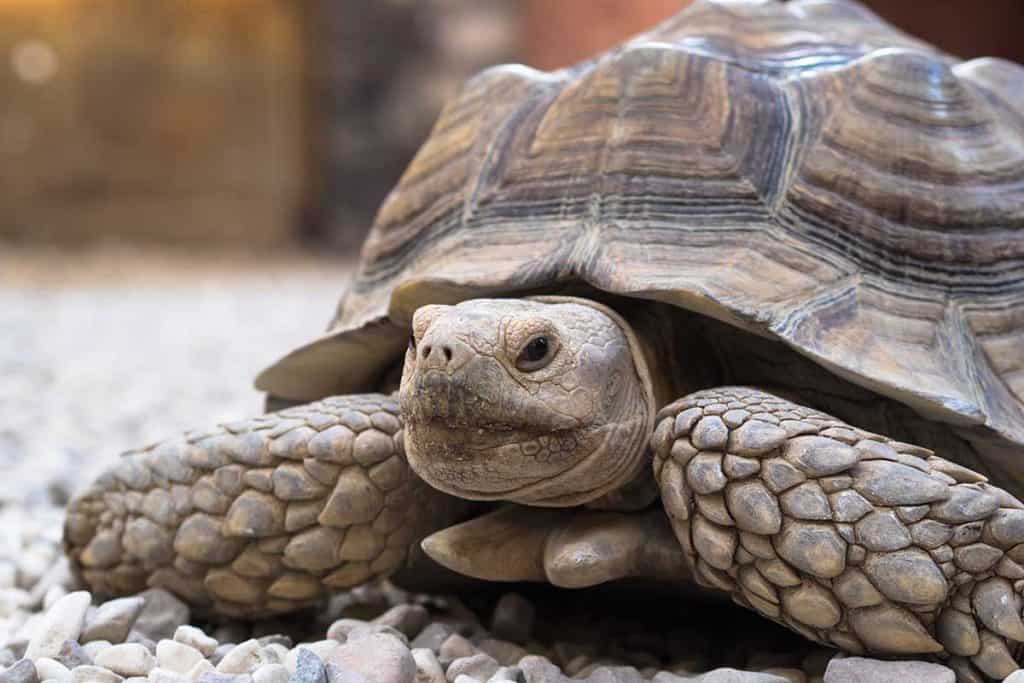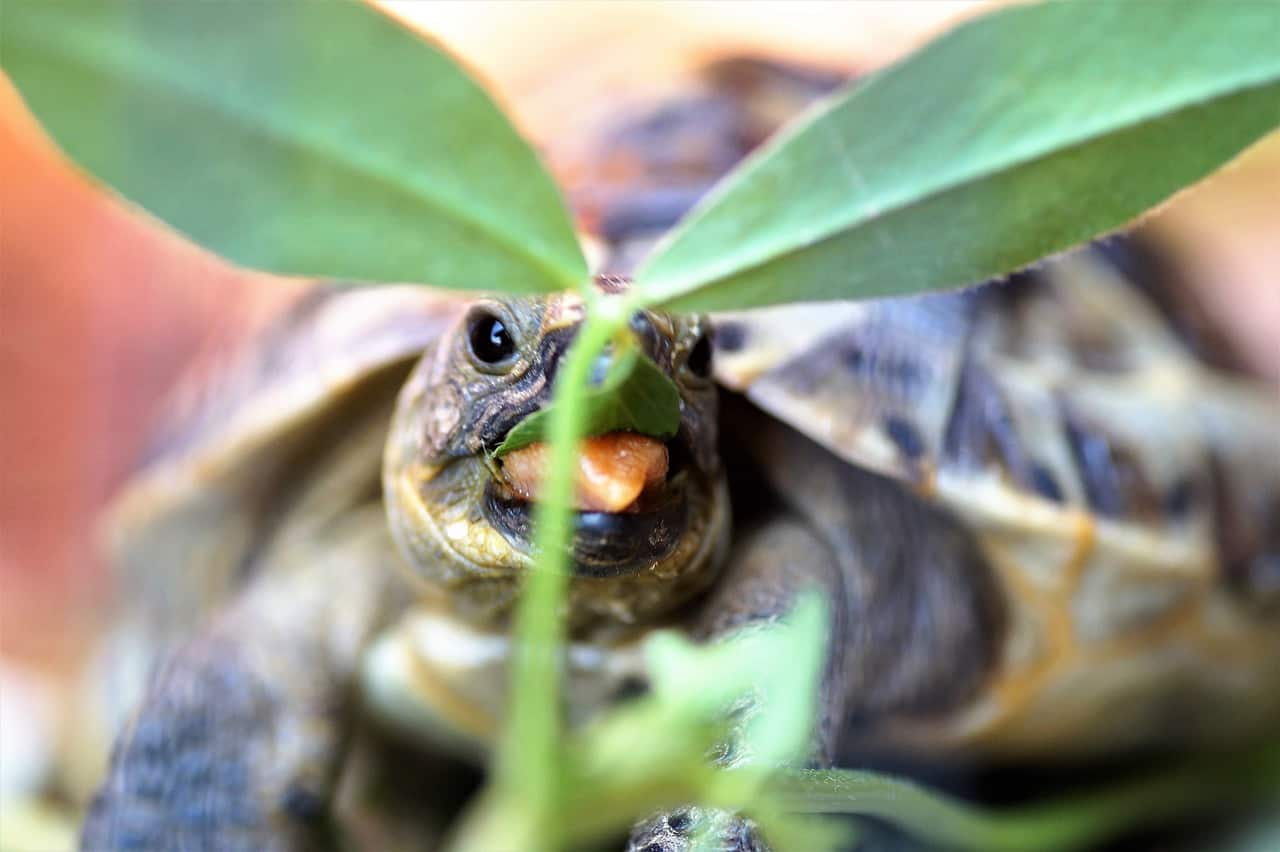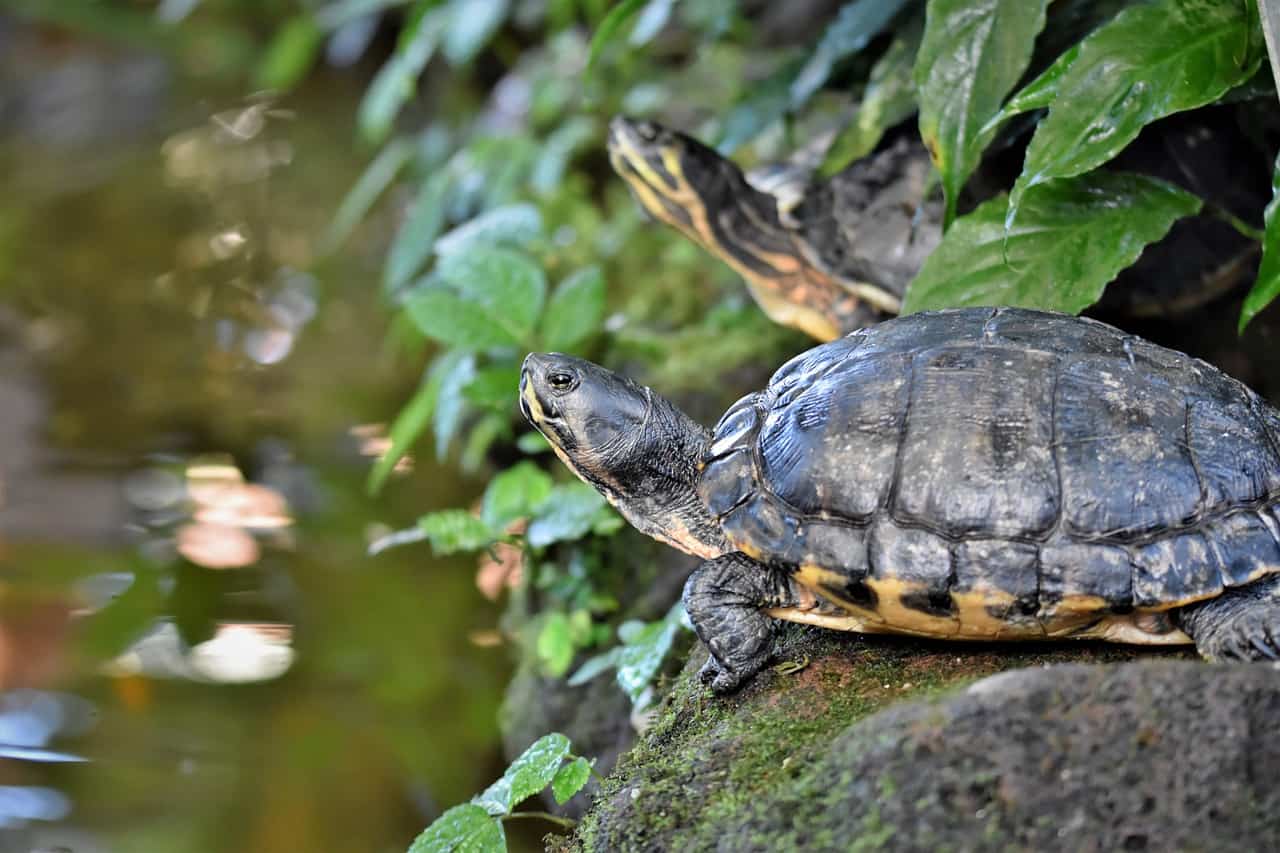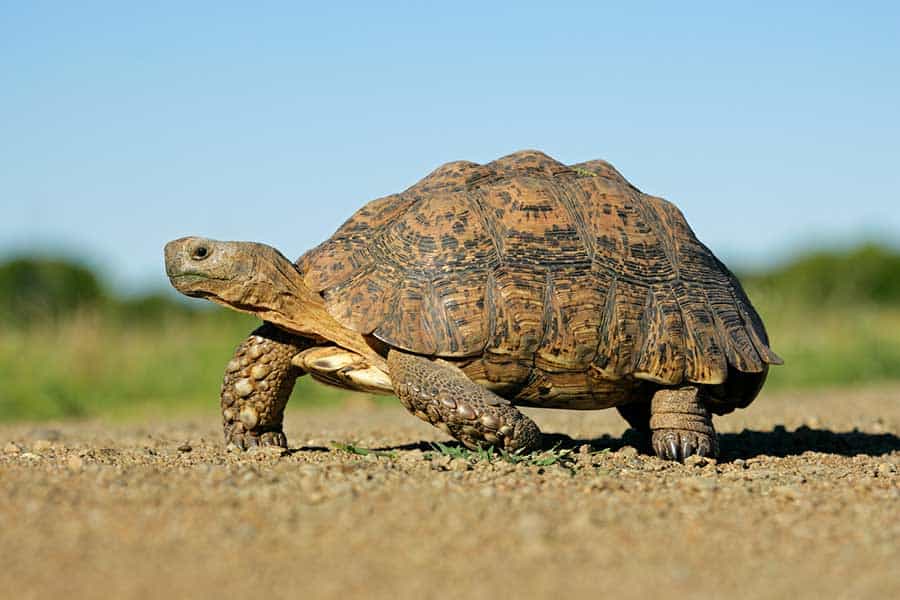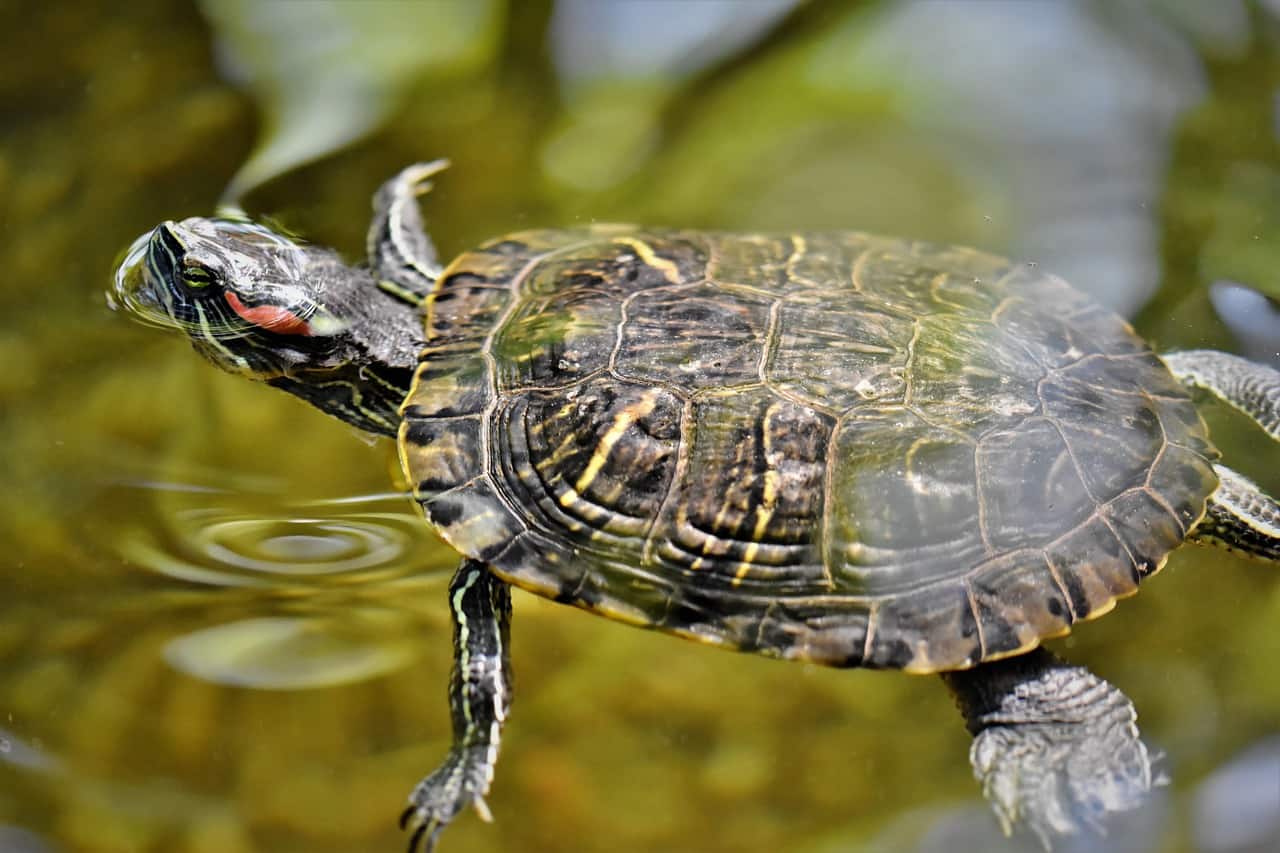Dehydration is a common problem in reptiles, primarily because of the conditions they are kept in captivity. To recreate their natural habitat as closely as possible, you should provide them with plenty of heat and UV lighting. Maybe you are wondering how to tell if you have a dehydrated tortoise. If so, you’re in the right place!
Depending on your tortoise’s housing setup, the high heat output combined with a lack of rain that would occur naturally in the wild can mean your tortoise might not be getting the moisture they need to stay hydrated.
Since dehydration is such a common issue for pet tortoises, you must know the signs to watch out for. Not only that, but if left untreated, dehydration can lead to problems like shell deformities, bladder stones, and even death.
So, how can you prevent your pet tortoise from becoming dehydrated? Read on to learn more about the symptoms of dehydration to watch out for and how you can help hydrate your pet tortoise if they are experiencing it!
Dehydration in Tortoises: Signs and Symptoms
How can you tell if your tortoise is suffering from dehydration?
It can be difficult to tell if your shelled friend is dehydrated, and it may not be obvious to the naked eye if you don’t know the signs to watch for.
The following are the main telltale signs your tortoise is experiencing mild or moderate dehydration:
- They keep their eyes closed more often, or their eyes appear to be sunken in
- Their body weight has decreased and they feel lighter when picked up
- You’ve noticed a sudden loss of appetite
- Your pet tortoise is lethargic and hasn’t been acting like their usual self
- Their feces appears dry and more hard than usual
- They don’t urinate as often, or their urine appears thicker or whiter than normal
- They have dry, wrinkled skin that may look loose or even flaky
- You’ve noticed reduced activity and more lazy behavior
- They have excessive mouth mucus
If you suspect that your tortoise might be dehydrated, pay extra attention to their bowel movements. Changes in pooping habits can be a strong indicator that something is off with their level of hydration and nutrition in general. The bigger the change, the more concerned you should be.
Additionally, you should pay attention to any sudden changes in your tortoise’s personality and energy level. If they are usually very active and love exploring their enclosure, but all of a sudden all they seem to want to do is laze about, that could be cause for concern.
How to Treat Dehydration in Tortoises
Maybe after reading through the list of symptoms, you believe that your tortoise is dehydrated. You’re not sure what steps to take next. First things first: don’t panic!
If the signs are minimal and your tortoise still seems healthy otherwise, there are steps you can take to help them without needing to visit a vet straight away.
First, consider providing a
Another thing you can do is make sure you are offering lots of nutritious leafy greens and veggies. Since tortoises get much of their moisture from their diet, ensuring that you are offering plenty of options is an excellent way to make sure they stay hydrated.
Lettuce, cucumber, and cactus are great additions to give a dehydrated tortoise because of their high water content. You can also mist them with additional water to provide even more hydration!
Another way to rehydrate your tortoise is by bathing them. No, I don’t mean with soap as we humans bathe! Just fill a container with lukewarm water and let your tortoise soak in it. Sometimes, soaking encourages them to take a drink, and it can also rehydrate their skin.
Whatever route you take to rehydrate your tortoise, make sure to keep their stress levels low throughout the process. The last thing you want is a dehydrated tortoise that is stressed out! Keep handling to a minimum and ensure that their lighting, bedding, and diet are all correct.
When to See a Vet
If your tortoise is exhibiting most of the symptoms of dehydration and is acting tired or less energetic than usual, it might be time to get a vet involved.
Sometimes, a lack of hydration is the result of an underlying health condition that you may not even realize your tortoise has. An exotics vet will be able to conduct a visual assessment and physical exam to rule out any other health issues. They will also be able to help with treatment and advise on the next best steps for you to take.
Severe dehydration that is not taken care of can lead to a host of other medical issues, such as:
- Shedding issues
- Bladder stones
- Shell deformities
- Digestive issues
- Chemical imbalances
If the issue persists, it can even lead to death. When left untreated, symptoms will continue to worsen, leading to a slow health decline that can turn out to be fatal.
FAQs on Tortoise Dehydration
Why does my tortoise never drink water?
Many tortoise species are desert dwellers, so they don’t come across a lot of standing water sources in the wild to drink from. This is why if you put a water dish in your tortoise’s enclosure, they tend not to show interest or even ignore it completely.
In their natural habitats, a tortoise would get most of their hydration from raindrops, natural humidity, and food sources. So, to ensure your pet stays hydrated, you should try to replicate these sources as closely as possible.
Offer a soak now and again and drop water droplets onto your tortoise’s nose. Offer them vegetables and greens daily, and replenish them with fresh ones if they dry out under the
How often should you soak a tortoise?
You should soak your pet tortoise once or twice a week in warm water, even if they aren’t displaying any signs of dehydration. Doing so helps their skin stay hydrated, which will aid them in shedding. It also encourages them to drink. You can soak your tortoise more often if they are dirty or if they just really enjoy the water.
If your enclosure is large enough, you might choose to add a large bath inside of it so that your tortoise will have the option to soak and play in the water as they please. Just make sure you clean it daily! Tortoises often defecate in warm water because it stimulates their bowels.
How long can tortoises go without water?
Ideally, a tortoise should only go a few days without water at a time. A healthy tortoise, however, can easily go up to a week without water in low humidity environments.
Maybe you are a reptile owner and you have the misconception that because many tortoise species are from arid climates and are used to dry conditions, going without water for a while is not a problem for them.
While it’s definitely not ideal, a tortoise could likely go much longer without water and still survive. However, after one or two weeks, the risk of severe and even irreversible health issues increases, as does the potential of death. In general, it’s not a good idea to withhold water from your tortoise for any reason, and it’s not worth the risk.
Can tortoises drink tap water?
In most cases, tortoises can drink water straight from the tap. This is because tap water in many areas is treated and goes through processes that make it safe for consumption. The general rule of thumb you should follow is: if it’s safe for humans to drink, it’s safe for your pet tortoise!
If you would rather be safe than sorry, there is always the option of adding a few drops of a reptile water conditioner and dechlorinator or just using spring water instead.
Final Word on Dehydration in Tortoises
Dehydration is a common health issue in pet reptiles, and that includes tortoises. This can be attributed mostly to the high heat conditions they are kept in.
Since a pet tortoise isn’t able to get hydration from rain and natural humidity like they would in the wild, it’s important to take steps to make sure your pet has access to water. You can do this by providing a wide variety of fruits, veggies, and greens, as well as offering soaks one or two times a week.
It’s essential to make sure you know the common signs and symptoms of dehydrated tortoises to watch out for. This way, you can predict issues as they arise and treat them immediately. Trust me; your pet tortoise will thank you!

